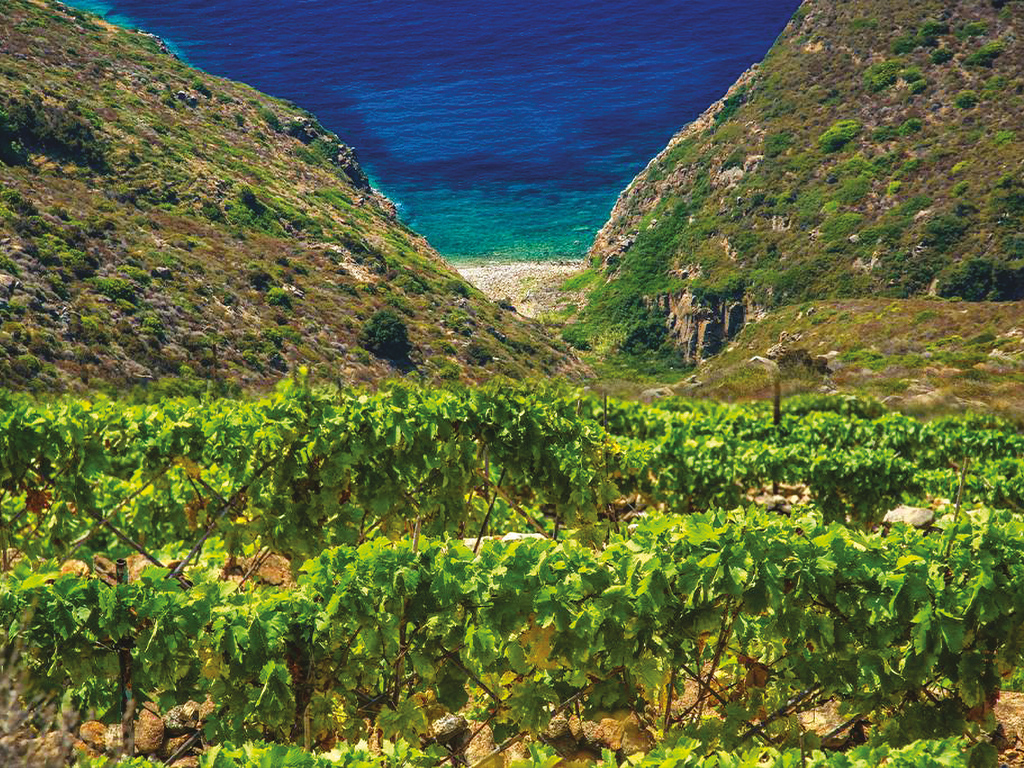Giannutri è una mezzaluna di terra di appena 2,6 chilometri immersa nel Mar Tirreno, priva di spiagge attrezzate, locali alla moda o approdi per grandi imbarcazioni. Qui la natura è ancora protagonista, sfuggita alla prepotenza dell’uomo e salvata dalla pertinacia del Parco. Grazie a questa protezione, l’isola è diventata un laboratorio di scienza a cielo aperto. Un gruppo di ricercatori coordinati da Leonardo Dapporto ha studiato per oltre un mese all’anno l’impatto delle api da miele sulle api selvatiche autoctone. In Italia esiste una sola specie di ape mellifera, ma oltre mille specie di api selvatiche, spesso ignorate, eppure fondamentali per l’equilibrio ecologico. Lo studio ha rivelato che l’introduzione dell’ape mellifera a Giannutri ha generato una competizione dannosa, causando una riduzione dell’80% delle api selvatiche tra il 2021 e il 2024. Per analizzare meglio il fenomeno, in determinati giorni le mellifere sono state chiuse nelle arnie. Il dato non nega il valore degli apicoltori, custodi di un’antica tradizione, ma apre nuove prospettive per la tutela dell’ecosistema locale. Il messaggio è chiaro: la natura non conosce il concetto di “buoni” e “cattivi”, esiste solo l’equilibrio. Oggi lo studio continua e ci insegna che non è necessario andare lontano per fare scoperte significative. Il nostro Arcipelago è un tesoro da comprendere, tutelare e amare, perché solo salvandolo possiamo salvarci.
Giannutri is part of the National Park of the Tuscan Archipelago; it is a small, unspoilt island, beautiful simply because it has no beaches with facilities, no luxury hotels or marinas. Here, nature is still the protagonist. For four years, researchers from the University of Florence have been studying the impact of honey bees on wild bees. Italy has only one species of honey bee, but over a thousand species of wild bees, often ignored, but vital to our ecosystem. The study revealed that the introduction of honey bees on Giannutri created harmful competition, reducing wild bees by 80% from 2021 to 2024. On some days, honey bees were confined to their hives to better understand the phenomenon. This does not diminish the role of beekeepers, who are guardians of an ancient tradition, but rather opens new avenues for research and conservation. The lesson is that nature knows no good or bad, only the balance of the ecosystem. The study continues, showing that great discoveries can happen close to home. Our archipelago is a treasure worth protecting—by saving it, we save ourselves.
Giannutri ist Teil des Nationalparks der toskanischen Inseln – eine kleine, wilde, wunderschöne Insel, ganz ohne Strände mit Infrastruktur, ohne Luxushotels oder Yachthäfen. Hier steht die Natur im Mittelpunkt. In den letzten vier Jahren haben Forscher der Universität Florenz untersucht, wie sich Honigbienen auf die einheimischen Wildbienen auswirken. In Italien gibt es nur eine Art von Honigbienen, aber über tausend verschiedene Wildbienenarten – sie sind entscheidend für das ökologische Gleichgewicht. Die Studie zeigt: Die Einführung von Honigbienen auf Giannutri führte zu schädlicher Konkurrenz, wodurch die Anzahl der Wildbienen zwischen 2021 und 2024 um 80 % zurückging. Um den Effekt besser zu verstehen, wurden die Honigbienen zeitweise in ihren Bienenstöcken belassen. Dies schmälert nicht die Rolle der Imker, die eine wertvolle Tradition bewahren, sondern eröffnet neue Wege für den Schutz der lokalen Ökosysteme. Die Natur kennt keine „Guten“ oder „Bösen“, sondern nur das Gleichgewicht. Die Studie geht weiter und zeigt, dass bahnbrechende Entdeckungen auch in der Nähe gemacht werden können. Unser Archipel ist ein Schatz, den es zu erforschen, zu schützen und zu lieben gilt – denn nur wenn wir ihn bewahren, bewahren wir uns selbst.

